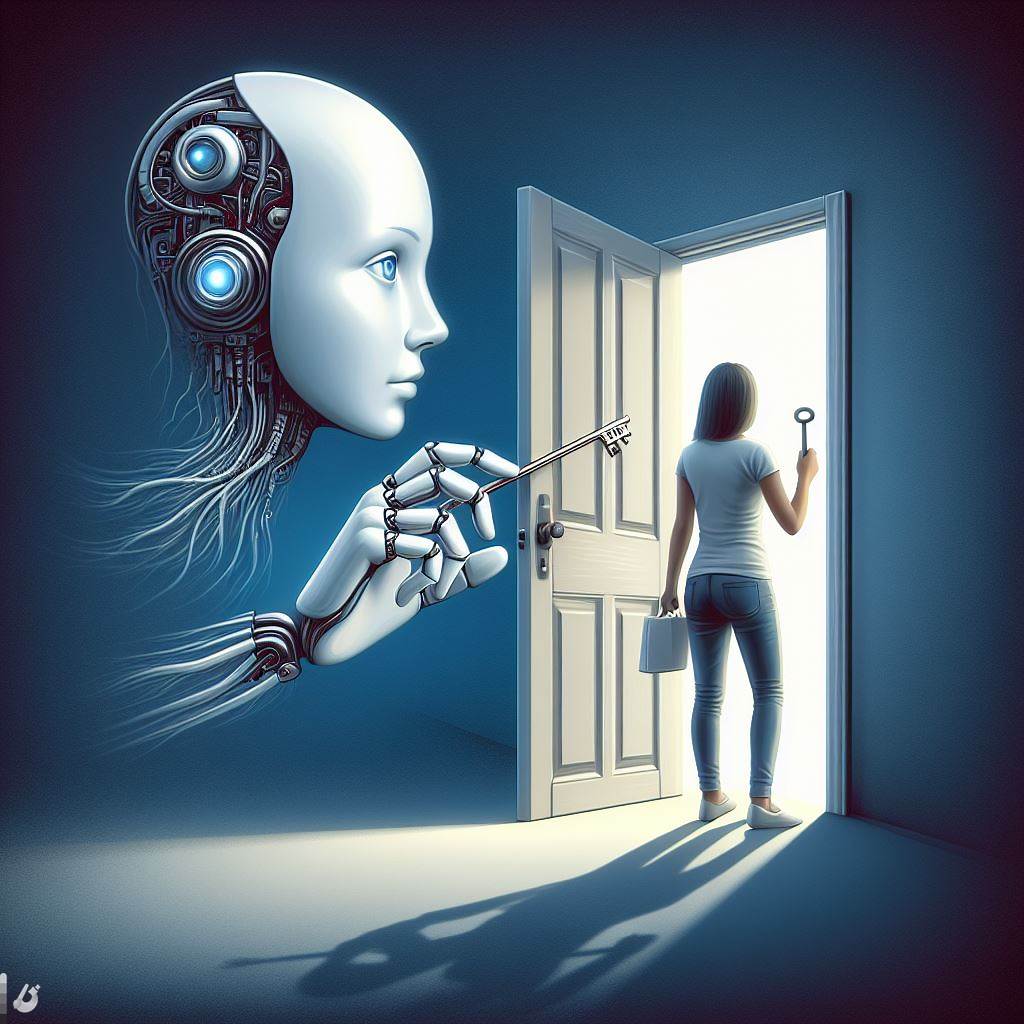
In an era dominated by artificial intelligence (AI), society stands on the brink of a transformative shift that promises to overcome inherent human limitations in various systems. One critical limitation under scrutiny is the prevalence of information and logistical bottlenecks in decision-making processes.
Traditionally, individuals have grappled with reducing complex choices to a limited set of options, sacrificing the depth of their true desires. AI, however, holds the potential to eradicate such limitations, marking a significant shift in how democracy functions.
AI researcher Tantum Collins and a public-interest technology scholar highlight the concept of AI overcoming "lossy bottlenecks." The term 'lossy' is derived from information theory, signifying imperfect communication channels that result in information loss.
Overcoming Decision-Making Bottlenecks
Consider the scenario of a restaurant visit, where limitations in the kitchen and logistical constraints force diners into choosing from a menu of standardized options. This represents a 'lossy bottleneck,' where rich and multifaceted desires clash with a simplified decision-making process.
The potential of AI lies in storing comprehensive representations of individuals' preferences and histories, coupled with a repository of capabilities, costs, and creative possibilities. This enables AI systems to facilitate complex customization on a large scale and at a low cost.
Early experiments, such as using ChatGPT for meal planning based on dietary restrictions, hint at the vast possibilities of overcoming 'lossy bottlenecks' in various domains.
Beyond Culinary Preferences
The impact of AI extends to labor markets, where traditional assessments based on grades and certifications fall short. AI, armed with detailed information about a candidate's coursework, exams, and teacher feedback, can provide richer evaluations of job suitability.
Similarly, in the realm of apparel, AI can significantly reduce customization costs by learning individual styles, taking measurements from photos, and generating designs tailored to personal tastes.
In the software domain, AI systems observing users' interaction styles can redesign interfaces to suit individual needs, breaking away from the one-size-fits-all approach.
Revolutionizing Democracy
While these applications are transformative, the most significant societal impact lies in politics. Similar to the restaurant scenario, citizens face 'lossy bottlenecks' when expressing nuanced policy positions. The current democratic process limits participation to choosing between a handful of representatives or parties.
AI has the potential to revolutionize democracy by eliminating this 'lossy bottleneck.' An envisioned system would allow individuals to convey detailed political preferences to an AI, advocating for specific policies on their behalf. This could lead to enhanced voter representation, reflecting the nuanced desires of the electorate.
Despite the potential benefits, concerns about privacy and the need for human deliberation in a functioning democracy must be addressed. The transition from current representative democracies to AI-enhanced direct democracies poses challenges, and the feasibility of such a transformation remains speculative.
First Steps and Potential Risks
The initial application of these technologies is likely to occur in less politically charged domains, such as digital media recommendation systems. While a world without artificial bottlenecks carries risks, including job displacement, it also promises to liberate individuals from constraints that have long stifled large-scale decision-making.
In conclusion, the potential of AI to overcome information bottlenecks presents a paradigm shift in decision-making across various domains. The journey toward a future without these bottlenecks requires careful consideration of ethical, privacy, and transitional challenges.